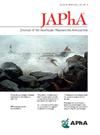Perceptions and attitudes of health-related social needs program facilitators within community pharmacies: A mixed methods study
IF 2.5
4区 医学
Q3 PHARMACOLOGY & PHARMACY
Journal of the American Pharmacists Association
Pub Date : 2025-06-10
DOI:10.1016/j.japh.2025.102446
引用次数: 0
Abstract
Background
Community pharmacy health-related social needs (HRSN) programs leverage pharmacy accessibility and connect patients to local resources, but the contextual factors influencing implementation are not fully understood. This study explored program facilitators' perceptions and attitudes towards implementing a HRSN program within pharmacy settings using the updated Consolidated Framework for Implementation Research (CFIR).
Methods
This concurrent mixed methods study used a survey and focus groups with program facilitators from the Community Pharmacy Enhanced Services Network of New York, a clinically integrated network of pharmacies. We identified 15 pharmacies participating in an ongoing HRSN screening and navigation program between January and May 2023. An online survey was sent to all program facilitators, and two focus groups were conducted. Both data collection instruments were developed using the CFIR. A rapid analysis of the focus group transcripts was conducted to evaluate the qualitative data and CFIR was utilized to deductively map themes to relevant domains and constructs.
Results
Participants included 12 program facilitators consisting of 3 pharmacists and 9 technicians (response rate 75%). Most participants (83%) agreed that the abbreviated Community Health Worker course, focused on cultural competency and effective communication, improved their ability to engage patients about social needs. Nine (75%) participants agreed that pharmacy leadership provided sufficient time, encouragement, and equipment to support program tasks. Focus groups identified 3 major themes (training, leadership engagement, and patient engagement challenges), which encompassed 8 subthemes.
Conclusion
Implementation success was influenced by constructs across CFIR domains, including, Access to Knowledge, Leadership Engagement, Structural Characteristics, and Complexity. Training, implementation strategies, and multilevel leadership were identified as critical enablers. Addressing staffing, workflow, and referral system challenges may enhance integration and sustainability of HRSN programs in community pharmacies.
社区药房中与健康相关的社会需求项目促进者的认知和态度:一项混合方法研究。
背景:社区药房健康相关社会需求(HRSN)计划利用药房可及性并将患者与当地资源联系起来,但影响实施的环境因素尚未完全了解。本研究利用最新的实施研究综合框架(CFIR),探讨了项目促进者对在药房环境中实施HRSN项目的看法和态度。方法:这项同时进行的混合方法研究采用了一项调查和焦点小组,以及来自纽约社区药房增强服务网络(CPESN NY)的项目促进者,这是一个临床整合的药房网络。在2023年1月至5月期间,我们确定了15家参与正在进行的HRSN筛选和导航项目的药店。一份在线调查被发送给所有的项目协调员,并进行了两个焦点小组。这两种数据收集工具都是使用CFIR开发的。通过对焦点小组文本的快速分析来评估定性数据,并利用CFIR将主题演绎映射到相关领域和结构。结果:参与者包括12名项目协调员,其中药剂师3名,技术人员9名(有效率75%)。大多数参与者(83%)认为,缩短的CHW课程,注重文化能力和有效的沟通,提高了他们与患者接触的社会需求的能力。9名(75%)参与者同意药房领导提供了足够的时间、鼓励和设备来支持项目任务。焦点小组确定了三个主要主题(培训、领导参与和患者参与挑战),其中包括八个子主题。结论:实施成功受知识获取、领导参与、结构特征和复杂性等CFIR领域结构的影响。培训、实施策略和多层次领导被确定为关键的促成因素。解决人员配置、工作流程和转诊系统的挑战可能会提高社区药房HRSN项目的整合和可持续性。
本文章由计算机程序翻译,如有差异,请以英文原文为准。
求助全文
约1分钟内获得全文
求助全文
来源期刊
CiteScore
3.30
自引率
14.30%
发文量
336
审稿时长
46 days
期刊介绍:
The Journal of the American Pharmacists Association is the official peer-reviewed journal of the American Pharmacists Association (APhA), providing information on pharmaceutical care, drug therapy, diseases and other health issues, trends in pharmacy practice and therapeutics, informed opinion, and original research. JAPhA publishes original research, reviews, experiences, and opinion articles that link science to contemporary pharmacy practice to improve patient care.

 求助内容:
求助内容: 应助结果提醒方式:
应助结果提醒方式:


